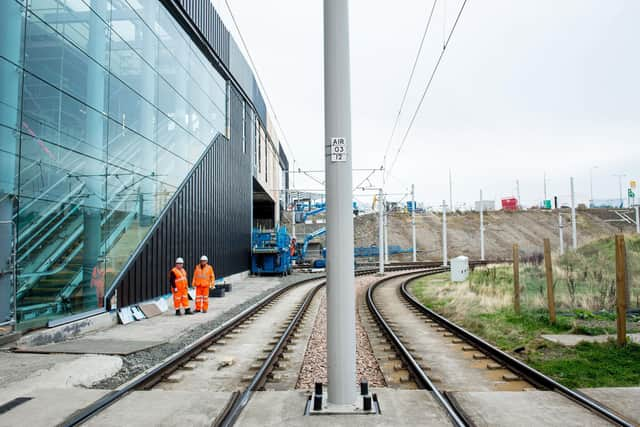The thinking on our city transport isn’t joined up- Sue Webber


Warm buzz-phrases abound for what the rest of us call common sense and speaking to those affected, but for all the fancy words it’s remarkable how often it doesn’t happen, and changes to the way people travel from West Edinburgh is a prime example.
Three processes are at various stages of development; one is the city centre transformation to make it impossible to drive across town, the second is the vast expansion of Gogar, Cammo and Ingliston into a new district, and the third is the expansion of Winchburgh into a full-blown new town.
Advertisement
Hide AdAdvertisement
Hide AdWithout proper co-ordination it’s a recipe for gridlock because the first is designed to block traffic and encourage people to use public transport, and the second two will make public transport less efficient because of increased congestion on main roads. It looks like coordination involves sitting back to watch the gridlock worsen, the tried and trusted method of using congestion to make driving unattractive.
Let’s start with Winchburgh. This week a petition was presented to the Scottish Government from the campaign to give the town a new railway station on the main Edinburgh-Glasgow line and give the burgeoning community access to two city centres, and Stirling, where many will work.
When I say presented, no-one from the SNP or Greens came out to meet the campaigners and we had to take the signatures into the building and dump them in the minister’s office. Bizarrely, the campaigners also say they have had no engagement from either Green ministers, Patrick Harvie or Lorna Slater, despite sustainable transport being at the heart of their now wrecked net zero strategy.
In fairness, a meeting of the various official agencies involved did take place, but by video, which hardly suggests it’s a ministerial priority. As it stands, new Winchburghers will have no choice but to drive or catch a bus which will sit in the same lengthening queue of traffic. The jams will only get worse because the city council not only plans to funnel vehicles onto fewer roads, but narrow main routes to one lane either way, forcing buses, commercial traffic and cars to vie for the same road space.
Advertisement
Hide AdAdvertisement
Hide AdThe Corstorphine low traffic neighbourhood scheme is a prime example, where side streets which were quiet before are now blocked, snarling up the main routes.
The Edinburgh Gateway ghost station has the capacity of Haymarket, is ideal for the housing expansion around Gogar, yet the Scottish Government shows little interest in building a short stretch of track which would open it up for Glasgow-bound services. Again, the Greens have nothing to say.
And then there is the whole city centre plan, which involves blocking off Dalry Road, pushing even more traffic onto St Johns Road through Corstorphine and through the already shrunken road through Roseburn, or onto the West Approach Road where it will hit, guess what, a narrowed Lothian Road.
It’s less joined up than a child’s unfinished dot-to-dot. Maybe the plan is to force everyone to buy a bike, and in West Edinburgh the SNP, Greens and Edinburgh Labour might leave little other choice.
Sue Webber is a Scottish Conservative Lothian MSP
Comment Guidelines
National World encourages reader discussion on our stories. User feedback, insights and back-and-forth exchanges add a rich layer of context to reporting. Please review our Community Guidelines before commenting.